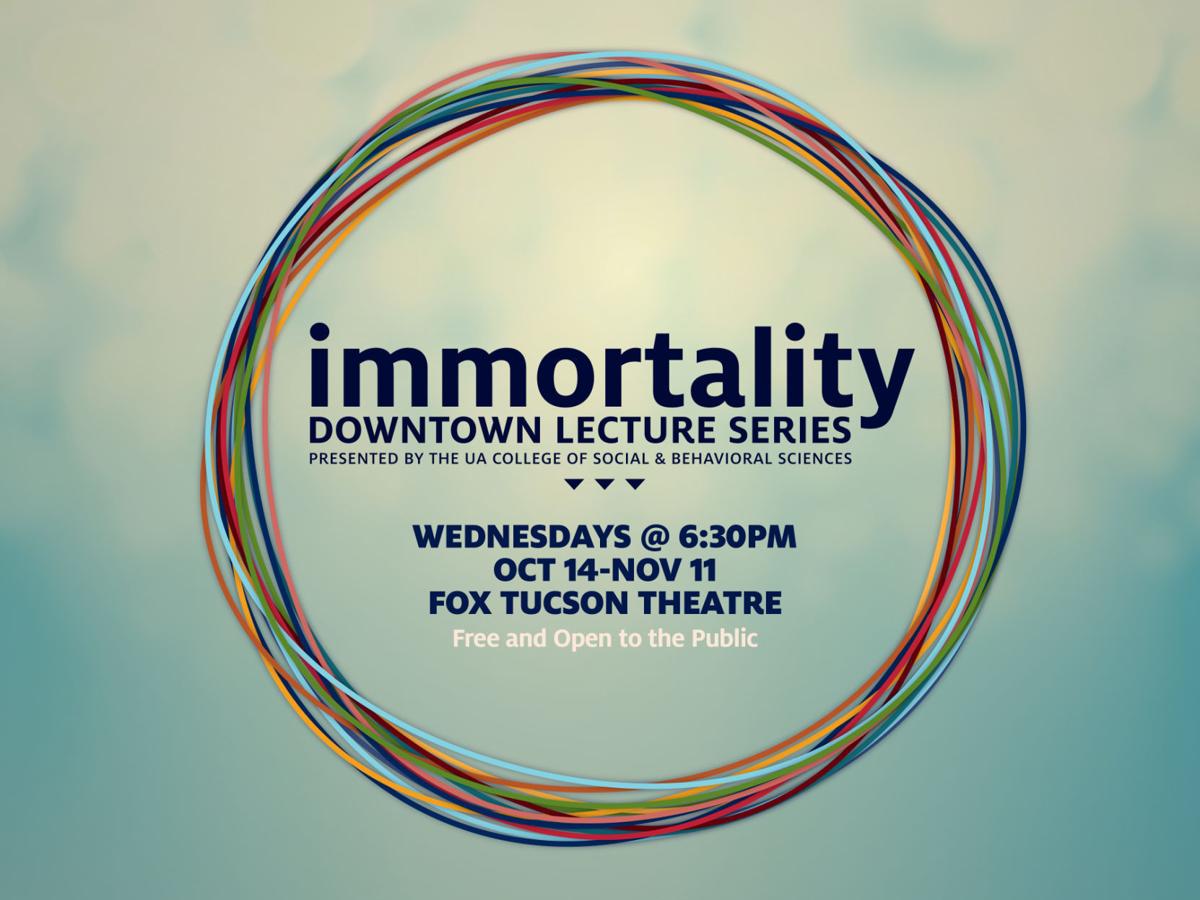Your view of the self determines how you treat others, what you believe about punishment and whether you fear death, University of Arizona Professor of Philosophy, Shaun Nichols, told a captivated audience Wednesday evening at the Fox Tucson Theatre.
Nichol’s presentation, “The Elusive Self in Life and Death,” was the last of the Downtown Lecture Series talks on immortality. The series was sponsored by the University of Arizona’s College of Social and Behavioral Sciences.
Nichols uses quantitative techniques to investigate the philosophical underpinnings of concepts like the self. His new discipline, known as experimental philosophy, “might sound like an oxymoron, but that has not deterred us,” he joked.
Nichol’s research tests the idea that one’s self concept can profoundly affect behavior by altering one’s feelings of generosity, sense of responsibility for past misdeeds or fear of death.
In his most recent study Nichols examined differences in the way three philosophies approach the concept of self. Nichol’s Abrahamic (mostly Christian) study subjects believed in a soul that is punished or rewarded in the afterlife; the orthodox Hindu subjects recognized a soul-like atman that stays the same and accrues karma, while the Tibetan Buddhist subjects believed there is no self but rather a constantly-changing set of traits.
A key focus of Nichol’s study was a “life generosity” scenario, in which subjects were asked to imagine they would die unless they took a lifesaving pill that would extend their own lives by six months. They were then asked to decide whether they would give the pill to someone else if it would extend that person’s life for a term that ranged from six months to more than ten years.
Nichols hypothesized that the Buddhist concept of a changing self would make these study subjects less fearful of death and more generous. His team found that the Buddhists were more fearful of death and less generous than Abrahamic or orthodox Hindu study subjects.
Nichols suggested that these differences could arise because the philosophical concept of a persistent self is very hard to give up, even for Buddhists who don’t believe in the self. Nichols pointed out that the Buddhist encouragement to think constantly about death might also have influenced the results.
Even if you think there is no self, he said, “When you ask people to imagine dying, that just seems terrifying, and there’s no way to blunt that.”
Instead of dwelling on death, Nichols suggested that ,“you might just think about something else . . . like biking in Tucson Mountain Park, or seeing a rock show at Club Congress, or donating to charity or having a drink.”
Nichols’ listeners responded positively to his energy and enthusiasm. Audience member Tim O’Connor commented that given “how taboo the idea of death is in our culture… to discuss it in a light and humorous fashion was refreshing.” Steve Dixon, who works with statistics, appreciated the quantitative nature of Nichols’ research.
According to Alex Sanford, the talks in the Downtown Lecture Series “were all interesting, all had their own perspectives, and were all backed up by research.”
Reflecting on what he had learned about immortality from the series, Sanford said, “The only thing that’s immortal is Bette Davis in ‘Jezebel.’ That’s going to be played for thousands of years. That’s immortality!”





